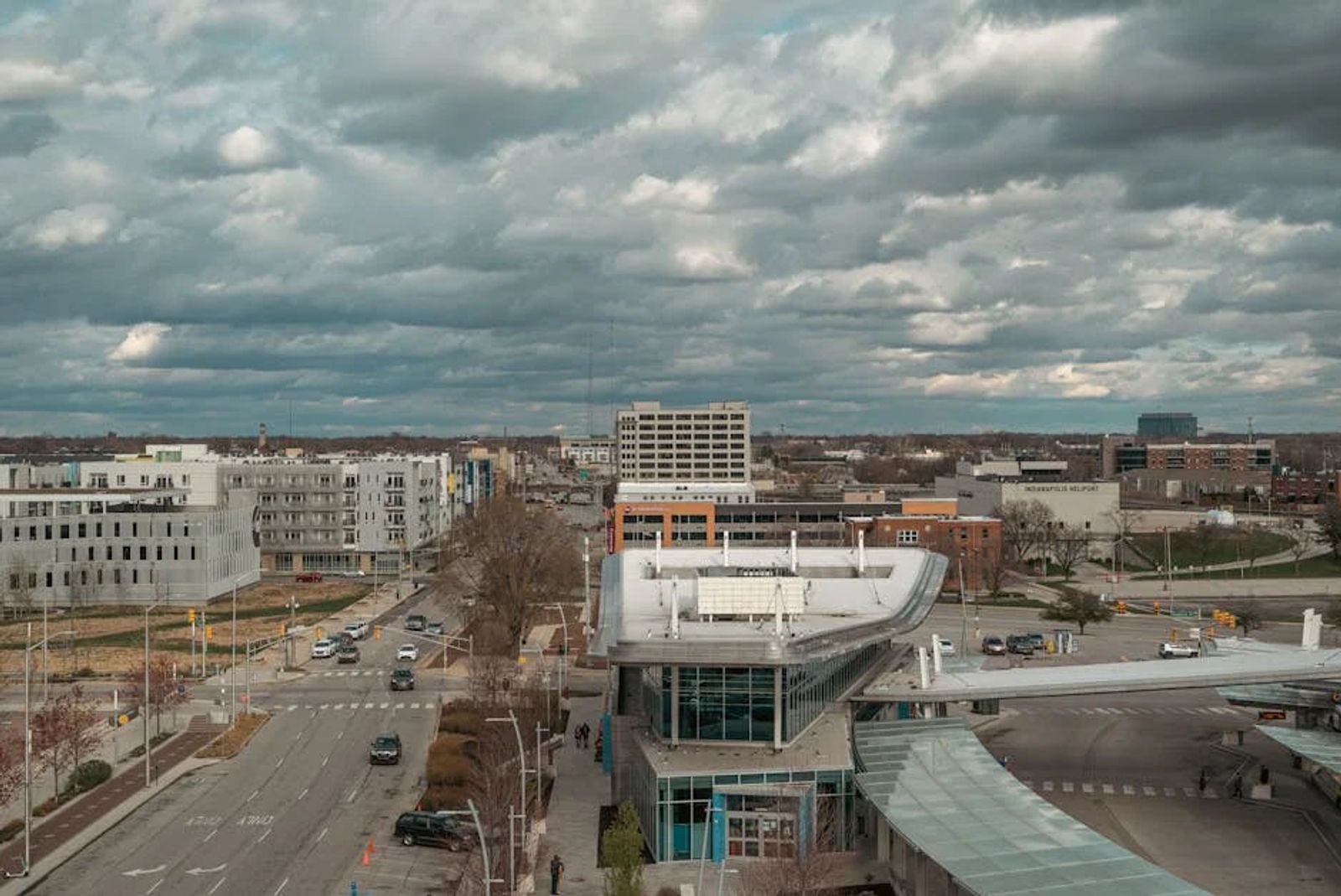
Investment Property Management Trends in Indianapolis for 2023
As we step into 2023, the landscape of investment property management in Indianapolis is rapidly evolving. With new technological advancements, market shifts, and regulatory changes, property managers and investors must stay informed to make strategic decisions. This blog explores the latest trends and how they are shaping the future of property management in this thriving city.
Technology Integration in Property Management
The integration of technology in property management has accelerated over the past few years, and 2023 is no exception. From advanced property management software to automated tenant screening and smart home devices, technology is making property management more efficient and data-driven. This section delves into the latest tech trends that Indianapolis property managers are adopting to streamline operations and improve tenant experiences.
One of the most significant technological advancements in property management is the use of Artificial Intelligence (AI) and machine learning. These technologies help property managers analyze vast amounts of data to make informed decisions quickly. Automated tenant screening processes utilize AI to assess potential renters by examining their credit scores, rental history, and other relevant factors. By leveraging AI, property managers can minimize human error, reduce the risk of problematic tenants, and increase overall tenant satisfaction.
Smart home technology is another trend gaining traction in investment property management. Devices such as smart thermostats, lighting systems, and security cameras not only enhance the tenant experience but also provide property managers with real-time data on property conditions. This enables proactive maintenance and helps prevent costly repairs. Moreover, smart home features are highly attractive to tech-savvy renters, making properties equipped with these technologies more competitive in the rental market.
Cloud-based property management software solutions are revolutionizing the industry by offering comprehensive tools that can be accessed from anywhere. These platforms allow property managers to handle everything from rent collection and lease management to maintenance requests and financial reporting. The convenience and efficiency of cloud-based systems free up time for property managers to focus on strategic planning and tenant relations, rather than getting bogged down by administrative tasks.
The Impact of Real Estate Market Trends
The real estate market in Indianapolis is experiencing notable shifts, affecting both rental demand and property values. This section discusses current market trends, including the rise of remote work, urban to suburban migration, and the influx of millennials into the rental market. Understanding these trends helps property managers make informed decisions regarding property investments and rental strategies.
The rise of remote work has dramatically influenced rental preferences in Indianapolis. Many remote workers are now seeking larger living spaces to accommodate home offices. As a result, properties with extra rooms or dedicated office spaces are in high demand. Property managers should consider marketing properties with these features or even renovating older units to include home office setups to attract more tenants.
Another trend is the migration from urban areas to suburban neighborhoods. This shift is primarily driven by the desire for more space and a quieter living environment. Suburban properties often offer larger yards and a greater sense of community, which appeal to families and individuals looking to escape the hustle and bustle of city life. Property managers might find lucrative opportunities in investing in or managing suburban properties.
The influx of millennials into the rental market is also shaping investment property management strategies. Millennials prioritize convenience, sustainability, and community living. Properties that offer modern amenities, energy-efficient features, and a strong sense of community are more likely to attract millennial renters. Property managers should consider incorporating these elements into their properties to meet the expectations of this growing demographic.
Sustainability and Green Building Practices
Sustainability is becoming increasingly important in investment property management. This section explores the growing trend of green building practices and energy-efficient upgrades in Indianapolis properties. By implementing sustainable measures, property managers can reduce operational costs, attract eco-conscious tenants, and enhance the overall value of their properties.
Energy-efficient upgrades, such as installing solar panels, energy-efficient windows, and LED lighting, not only reduce utility costs but also contribute to a property’s long-term sustainability. Tenants are gravitating towards properties that offer green features, and these upgrades can make a significant difference in reducing a property’s carbon footprint. Property managers who invest in such improvements can see a higher return on investment through increased property values and higher rental rates.
Green building certifications, such as LEED (Leadership in Energy and Environmental Design), are becoming more desirable in the rental market. Achieving LEED certification demonstrates a property’s commitment to sustainability and can attract environmentally conscious tenants. Additionally, properties with LEED certification often benefit from lower insurance premiums and increased marketability. Property managers should consider pursuing these certifications to enhance their properties’ appeal and market position.
Regulatory Changes and Compliance
Staying compliant with ever-changing regulations is a crucial aspect of property management. This section provides an overview of new and upcoming regulatory changes in Indianapolis that affect property managers, such as zoning laws, safety regulations, and tenant rights. Staying informed and proactive in compliance helps mitigate risks and safeguard investments.
Zoning laws in Indianapolis are continually evolving, and property managers must stay current with these changes to avoid potential penalties. Recent adjustments include modifications to residential zoning requirements and the introduction of new mixed-use development zones. Property managers need to understand how these changes affect their properties and make necessary adjustments to comply with local ordinances.
Safety regulations have also seen updates, particularly in response to the COVID-19 pandemic. Property managers are now required to implement enhanced cleaning protocols, ensure proper ventilation, and adhere to social distancing guidelines in common areas. Additionally, fire and building safety codes have seen revisions to improve tenant safety. Staying updated on these regulations is essential to maintain a secure environment for tenants and avoid legal liabilities.
Adapting to Tenant Needs and Preferences
Understanding and responding to tenant needs is key to successful property management. This section discusses emerging tenant preferences in Indianapolis, such as flexible lease terms, access to amenities, and community features. By adapting to these preferences, property managers can enhance tenant satisfaction and retention rates.
Flexible lease terms have become increasingly popular among tenants, especially in a post-pandemic world where many individuals are reluctant to commit to long-term leases. Month-to-month leases or short-term rental options provide tenants with the flexibility they desire. Property managers offering these options may find an increase in tenant interest and a reduction in vacant periods.
Access to amenities is another crucial factor that tenants consider when choosing a rental property. Amenities such as fitness centers, co-working spaces, and communal lounges can significantly enhance the appeal of a property. In Indianapolis, properties with advanced amenities stand out in a competitive market. Property managers should invest in upgrades and maintain high standards for the amenities provided to attract and retain tenants.
Community features, such as outdoor spaces, social events, and communal gardens, foster a sense of belonging among tenants. These features are particularly appealing to renters looking for a vibrant and interactive community. Property managers can organize events, maintain communal areas, and encourage tenant participation to create a positive and cohesive living environment. By prioritizing community-building efforts, property managers can improve tenant satisfaction and loyalty.
Embracing Change in 2023
Navigating the dynamic field of investment property management in Indianapolis requires staying abreast of the latest trends and leveraging new technologies and strategies. By understanding market demands, embracing technology, and adopting sustainable practices, property managers and investors can maximize their returns and ensure long-term success. As we move further into 2023, adaptability and continuous learning will be crucial for thriving in this ever-evolving industry.




